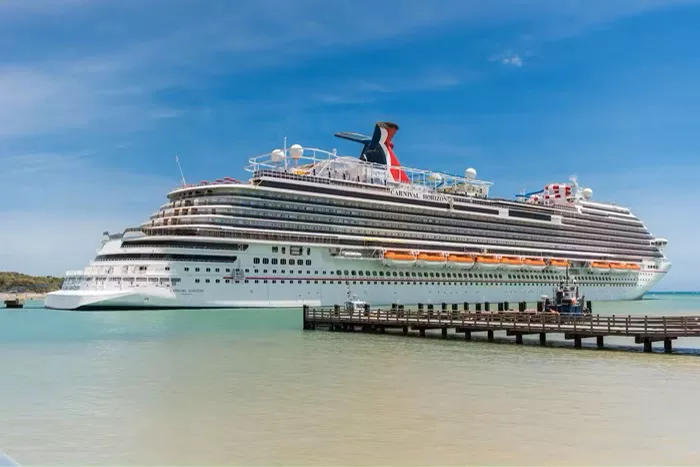Traveling on a cruise can be a thrilling experience, offering the chance to explore multiple destinations while enjoying the amenities of a floating resort. However, unforeseen events can sometimes disrupt travel plans, making travel insurance an essential consideration. One common question among travelers is whether they can purchase travel insurance after booking a cruise. This article explores the ins and outs of buying travel insurance post-booking, covering availability, coverage specifics, the process of selection, potential limitations, and tips for comprehensive coverage.
Availability and Timeframe
Can Travel Insurance Be Purchased After Booking a Cruise?
Yes, you can purchase travel insurance after booking your cruise. Most travel insurance providers allow you to buy coverage up until the day before departure. However, there are some important considerations and potential time restrictions to be aware of:
Booking Window for Optimal Coverage: While you can purchase insurance later, doing so within a specific window after your initial deposit can provide additional benefits. For example, many insurers offer coverage for pre-existing medical conditions if the policy is purchased within 14 to 21 days of making the first trip payment.
Late Purchase Restrictions: If you wait too long, certain benefits, such as “cancel for any reason” (CFAR) coverage, may not be available. Typically, CFAR coverage needs to be added within 14 to 30 days of your initial trip deposit.
Coverage Specifics
Types of Coverage Available When Purchasing Insurance After Booking
Even if purchased after booking, travel insurance can provide a range of protections, including:
Trip Cancellation and Interruption: Coverage for non-refundable trip costs if you need to cancel or interrupt your trip due to covered reasons such as illness, severe weather, or other unforeseen events.
Medical Emergencies: Insurance for medical expenses incurred due to illness or injury during your trip, which can be especially important when traveling abroad where your regular health insurance may not be accepted.
Baggage Loss or Delay: Compensation for lost, stolen, or delayed baggage, ensuring you can replace essential items and continue your trip with minimal disruption.
Travel Delay: Reimbursement for additional expenses incurred due to significant travel delays, such as accommodation and meals.
Emergency Evacuation and Repatriation: Coverage for emergency medical evacuation to the nearest suitable medical facility and, if necessary, transportation back to your home country.
Impact on Coverage When Purchasing Insurance Later
Pre-existing Conditions and Time-sensitive Benefits
When purchasing travel insurance after booking, several factors can influence the extent of your coverage:
Pre-existing Medical Conditions: Coverage for pre-existing conditions is often contingent on purchasing insurance within a specific time frame after your initial trip deposit (typically 14-21 days). If you buy insurance later, pre-existing conditions might be excluded from coverage.
‘Cancel for Any Reason’ (CFAR) Coverage: CFAR is a time-sensitive benefit that allows you to cancel your trip for reasons not typically covered under standard trip cancellation policies. To qualify for CFAR, you generally need to purchase the policy within a specific period (usually 14-30 days) after the initial trip payment.
Higher Premiums: Delaying the purchase of travel insurance can sometimes result in higher premiums, particularly if there are changes in your health status or other factors that might increase the risk for the insurer.
Steps to Take When Purchasing Travel Insurance Post-booking
How to Compare Policies and What Information Will Be Required
When you decide to purchase travel insurance after booking your cruise, follow these steps to ensure you choose the right policy:
Assess Your Needs: Consider what types of coverage are most important for your trip. Are you looking for extensive medical coverage, or is trip cancellation your primary concern?
Compare Policies: Use online comparison tools to evaluate different travel insurance policies. Look at the coverage limits, exclusions, and premium costs.
Read the Fine Print: Carefully read the policy details, paying close attention to any exclusions or conditions that may affect your coverage.
Check Reviews and Ratings: Look for reviews and ratings of the insurance providers to gauge their reliability and customer service.
Gather Necessary Information: Be prepared to provide information such as your trip itinerary, total trip cost, personal health details, and any existing coverage you might have.
Consult with an Insurance Agent: If you’re unsure which policy is best, consider consulting with a travel insurance agent who can provide personalized advice based on your specific needs.
Potential Disadvantages or Limitations of Buying Insurance After Booking
Common Exclusions and Higher Premiums
While purchasing travel insurance after booking is possible, there are several potential disadvantages to consider:
Limited Coverage for Pre-existing Conditions: As mentioned earlier, pre-existing medical conditions may not be covered if the insurance is purchased late.
Exclusion of Time-sensitive Benefits: Benefits like CFAR coverage often have strict purchase windows, and missing these deadlines can limit your options.
Higher Premiums: Insurance purchased closer to the departure date can sometimes be more expensive due to increased risk factors.
Restricted Options: Some insurers may have fewer policy options available for last-minute purchasers, limiting your choice of coverage.
Tips for Ensuring Comprehensive Coverage
Maximizing Your Travel Insurance Benefits
To ensure you have comprehensive coverage for your cruise, consider the following tips:
Review Existing Coverage: Check what is already covered by your personal health insurance, homeowners’ policy, or credit card benefits. Some credit cards offer travel insurance as a perk, which might reduce the need for additional coverage.
Purchase Early: Whenever possible, buy travel insurance soon after booking your trip to take advantage of the broadest range of benefits and lower premiums.
Understand Exclusions: Make sure you fully understand what is and isn’t covered under your policy, especially regarding pre-existing conditions and specific trip cancellations.
Customize Your Policy: Look for policies that allow you to add specific riders or endorsements to cover unique needs, such as high-value items or adventurous activities.
Maintain Documentation: Keep all relevant documents, such as receipts, medical records, and travel itineraries, readily available in case you need to file a claim.
Seek Professional Advice: If in doubt, consult with a travel insurance expert to help navigate the complexities of various policies and ensure you get the best coverage for your needs.
Additional Resources
For further assistance in comparing and purchasing travel insurance after booking a cruise, consider utilizing the following resources:
Travel Insurance Comparison Websites: Platforms like Squaremouth, InsureMyTrip, and TravelInsurance.com allow you to compare multiple policies from different providers.
Consumer Reviews: Websites such as Trustpilot and Consumer Affairs offer user reviews that can provide insights into the experiences of other travelers with specific insurance companies.
Insurance Provider Websites: Directly visiting the websites of well-known travel insurance companies like Allianz, Travel Guard, and World Nomads can give you detailed information about their offerings and policies.
Conclusion
While it is entirely possible to purchase travel insurance after booking a cruise, doing so sooner rather than later can provide more comprehensive coverage and peace of mind. By understanding the specifics of available coverage, comparing policies diligently, and being aware of potential limitations, you can ensure that your cruise vacation is protected against unexpected disruptions.
FAQs About Cruise Travel Insurance
1. Can you get cruise insurance after booking?
Yes, you can get cruise insurance after booking your trip. Many insurance providers allow you to purchase coverage up until the day before you depart. However, buying insurance as soon as you book your cruise can offer broader coverage, including protection for pre-existing medical conditions and cancellation for any reason.
2. Can you add cruise insurance later?
Yes, you can add cruise insurance later, even after you’ve already booked your trip. It’s important to check with your specific insurance provider for their policies and deadlines, but generally, you can purchase a policy up until shortly before your departure. Keep in mind that adding insurance closer to your travel date may limit some coverage options.
3. Can I add travel insurance after purchase?
Yes, you can add travel insurance after you have already made your travel purchase. Many insurers allow travelers to buy policies after the initial booking, though it’s recommended to do so sooner rather than later to ensure maximum coverage. Some benefits, such as coverage for pre-existing conditions or “cancel for any reason” policies, may only be available within a certain time frame after your initial trip deposit.
4. When to buy cruise travel insurance?
The best time to buy cruise travel insurance is immediately after booking your cruise. Purchasing insurance early can provide you with comprehensive coverage, including benefits for pre-existing conditions, trip cancellations, and other unforeseen events. Early purchase also ensures you have coverage for issues that may arise well before your departure date. If you delay, you may miss out on certain benefits and be at risk of facing unexpected expenses without coverage.
You Might Be Interested In





















